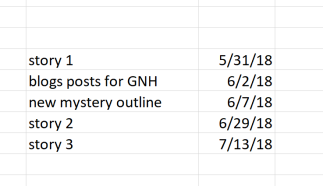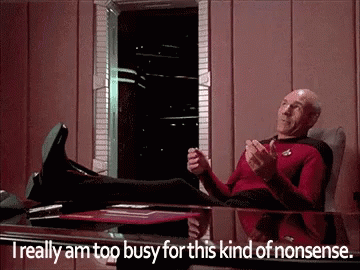It’s Monday morning. You’ve had your coffee, your avocado toast, and your obligatory half hour in front of the TV before it’s time to shuffle across the house to your desk. But for some reason, you just can’t do it.
Or maybe it’s after dinner, when you normally take a break from the real world to work on your novel. But as soon as you grab your laptop, you know your eyes will cross if you have to read your own story yet again. It isn’t bad writing, you just can’t do it.

You may have writer burnout. This isn’t quite the same as writer’s block, because in that situation you want to write but can’t. When you’re burned out, you don’t even want to pick up a pen. It happens to all of us, whether we’re getting paid or not. For me, I freelance for a living and write my own stories when I find the time. I’m always writing. Most of the time I’m thrilled to be doing so, but there are days when I just want to sit around in my fuzzy pink bathrobe and watch Star Trek.
Fortunately, there are a few things you can do to help stave off burnout:
Give Yourself Goals: It’s too easy to just not write, even if it’s your livelihood. Give yourself a goal every month. If you’re writing for yourself, make it a word count or a certain number of stories. If you’re freelancing, make it a dollar amount. When you reach your goal, treat yourself to that video game that you’ve been wanting or a new shirt. People working “regular” jobs get bonuses, so why shouldn’t you?
Buy a How-to Book: There are tons of books out there on writing, and they can be just the inspiration you need to get back on track. Find one that deals specifically with the type of writing you’re trying to do, whether it’s crafting the perfect murder mystery or learning how to boost your freelancing business. This also gives you an excuse to go out to the bookstore and get some coffee!
Take a Break: When you just can’t do it anymore, don’t! There are lots of techniques for working through writer’s block, but if you’re burned out its a good idea to walk away for a little while. It gives your brain a chance to focus on something else, and maybe come up with some great ideas in the meantime! Just make sure you go back and hit the keyboard after an hour or so.
Balance Your Checkbook: If your freelance work seems like the last thing you want to do, balance your checkbook and look at upcoming bills and expenses. For me, that’s usually enough to get my head back in the game!
Work on Something Different: There’s no written rule that you can’t have more than one story going. Tired of trying to figure out what your main character is going to do in chapter 5? Go find a new character to stalk!
While these methods aren’t going to be perfect for everyone, it’s important to give yourself scheduled breaks and avoid working too hard on one project. Find what works for you, and keep it going even when you don’t feel burned out. It’ll prevent future episodes and make sure those words keep coming. Good luck!
* * *
Ashley O’Melia is an independent author and freelancer from Southern Illinois. She holds her Bachelor’s Degree in Creative Writing and English from Southern New Hampshire University. Her books include The Wanderer’s Guide to Dragon Keeping and The Graveside Detective. Her short stories have been published in The Penmen Review, Paradox, and Subcutaneous. Ashley’s freelance work has spanned numerous genres for clients around the world. You can find her on Facebook and Amazon.
Be sure to check out the monthly giveaway! Don’t forget to sign up for my mailing list for news and more!











